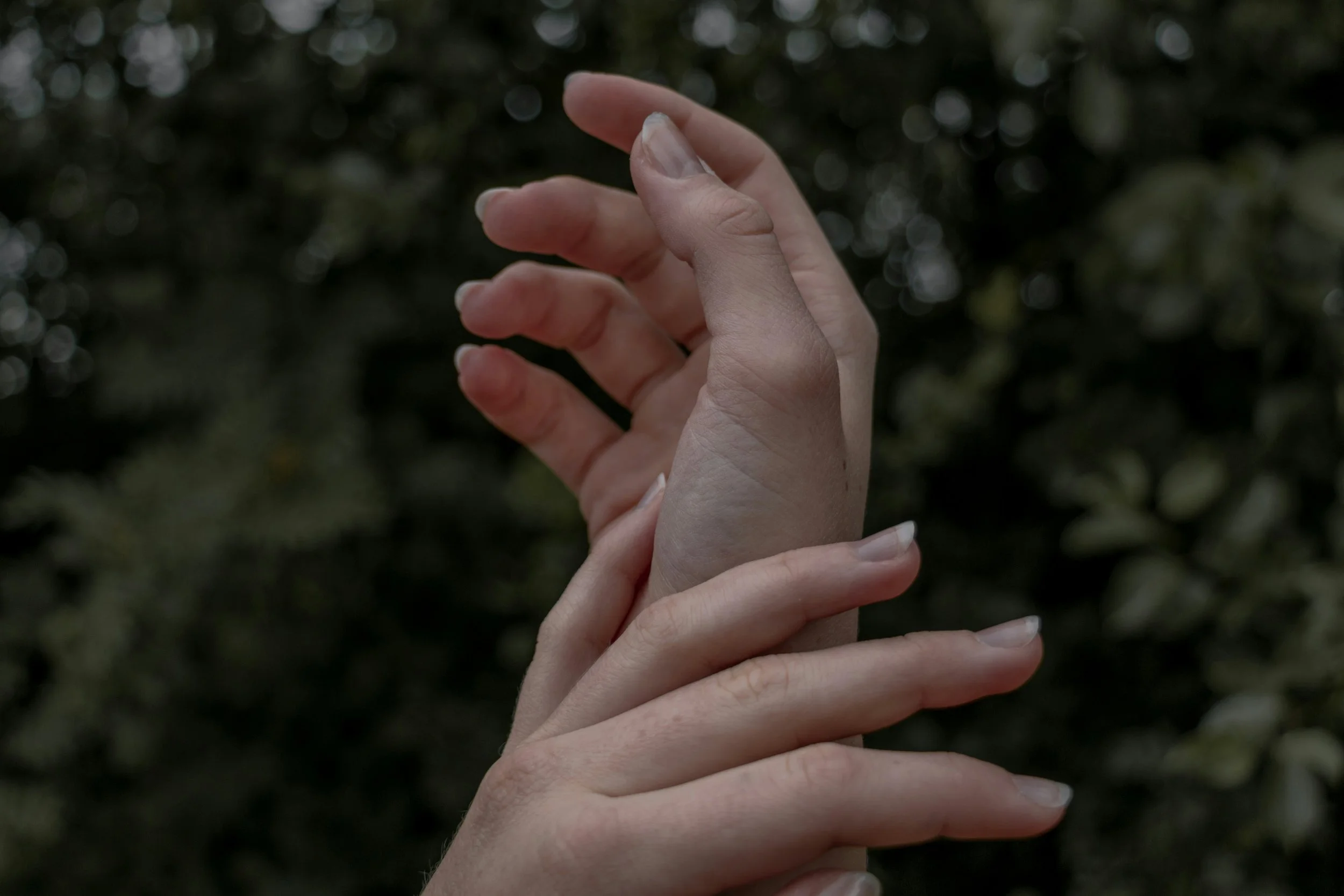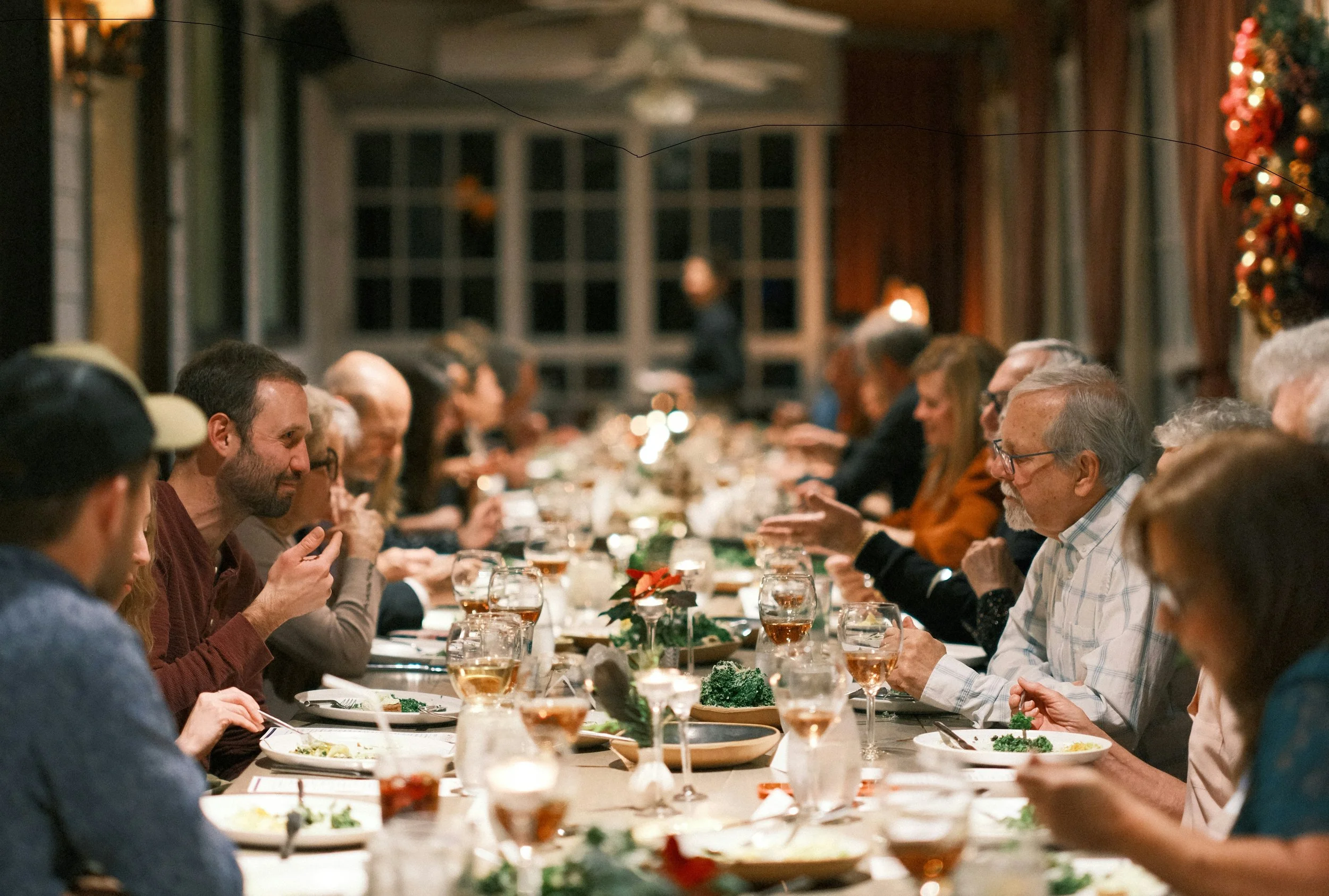Recovering from an Eating Disorder When It Feels Impossible
You don’t have to be all-in to begin.
You’ve probably heard the messages: reject diet culture, eat intuitively, trust your body.
If you’ve been deep in the trenches of an eating disorder — or even just trying to survive a chaotic relationship with food — those phrases can feel more like accusations than invitations.
If you’ve ever thought, “I can’t do that. I don’t believe I can do that. That sounds impossible,” we understand.
You’re Not Broken
It’s normal to be skeptical. Maybe you’ve lived for years by numbers: calories, macros, weights, minutes on the treadmill. Letting go of that can feel like letting go of your identity, your safety, your only way of managing life.
So when someone says, “Just listen to your body,” you might think, “Are you crazy?”
Here are a few truths that matter:
If you are caught up in an eating disorder, you won’t be able to listen to your body. The messages it sends will be skewed and confusing. That doesn’t mean you’re broken. It means you need support to untangle those signals — and to start hearing what’s underneath the noise of the eating disorder.
You don’t have to believe in intuitive eating to start healing.
You don’t even have to trust the process. You only need a tiny bit of willingness — a flicker of hope that things could be different.
And no, you don’t have to dive into the deep end. A lot of healing starts in the shallow water.
I Want It, No I Don’t Want It
Most people feel torn about recovery. Even if part of you wants change, another part might still cling tightly to what the eating disorder gives you — structure, safety, control, identity. That kind of ambivalence is not a flaw. It’s part of the process. It’s how everyone starts.
It’s completely normal to have mixed feelings about recovery. In fact, we expect it. Eating disorders don’t show up out of nowhere — they often develop as ways to survive overwhelming emotions or painful experiences. For some people, the eating disorder has been the one thing that got them through.
So of course there’s resistance. Of course there’s part of you that isn’t sure about giving it up. It’s not that you want to keep suffering — it’s that the eating disorder has served a purpose. Maybe it brought a sense of control, or safety, or even numbness when things felt unbearable.
Most likely, it worked — until it didn’t. Until it started creating problems of its own.
So if you're feeling torn, that makes sense. When you begin to look at how the eating disorder took root and what it’s been doing for you, the confusion starts to soften. You can begin to understand why it’s been so hard to let go. What started as a way to cope becomes the thing that causes more pain — and that awareness, while difficult, is often the beginning of something new.
That awareness is the beginning of recovery.
Recovery Without Intuitive Eating and Body Trust
What if you're not ready for all of it? What if the ideas of body trust or intuitive eating feel too far away? That doesn’t mean you can’t begin.
Recovery often starts with:
Gently challenging food fears
Exploring your belief system around food, eating, and body
Starting to separate your thoughts from the voice of the eating disorder
Trying on small, manageable shifts that feel doable — not overwhelming
Often, the things you’ve learned about food were filtered through the lens of the eating disorder. When we gently unpack those layers, you begin to get breathing room. That space gives you just enough clarity to consider new possibilities.
And that’s where things begin to shift — without pressure, without perfection, and without having to adopt a whole new philosophy.
Freedom Doesn't Have a Formula
We believe that intuitive eating, body trust, and peace with food are possible — and powerful. But we don’t believe they’re prerequisites to begin.
There’s no one way this has to look. You don’t have to believe in intuitive eating or body trust to begin shifting your relationship with food.
Sometimes healing starts with something smaller: a new question, a pause, a breath. That counts too.
What Recovery Often Looks Like
Real recovery isn’t a Pinterest board of peaceful meals and perfect self-care. It’s messy. It often includes:
Grief for the years and control you’re letting go of
Feeling worse before you feel better
Wanting to quit more than once
Saying, “I don’t know how to do this” — and doing it anyway
You’re not doing it wrong if it feels like a storm inside. You’re doing it exactly right.
But you don’t have to be all-in from the start. Recovery isn’t all-or-nothing, and it doesn’t always begin with trust or big leaps. For many people, it starts slowly, quietly — and with a lot of mixed feelings. That’s okay.
Here’s what we’ve found to be true:
You are more than your symptoms.
You’re allowed to heal, even if part of you thinks you don’t deserve it.
You don’t need to meet a certain standard of suffering to begin getting help.
You can be skeptical and still make progress.
You don’t have to trust your body to begin rebuilding that trust.
You don’t have to prove your pain. You don’t need to hit rock bottom.
And if you don’t feel ready? You’re still allowed to begin.
A Necessary Caveat
While we believe in going gently, we also know there are times when structure and urgency are necessary. If someone is medically unstable or at risk, there isn’t always time to explore every belief before making changes. In those cases, we prioritize safety first.
That doesn’t mean we stop listening, or that your fears don’t matter. It means we work alongside you — still with compassion, still unpacking beliefs, still challenging the eating disorder — while making sure you are safe enough to heal.
Sometimes that means being more direct. Not because we want to control you, but because we can’t let the eating disorder take your life. Recovery can still be respectful, even when it’s firm.
A Next Step That Doesn’t Require Perfection
If you’re curious — just a little — you can start by reading, by reaching out, or even just by pausing and asking, “What if there’s more for me than this?”
You don’t have to believe in all of it to begin. You just have to want something different.
Where to Go From Here
Here are a few ways to keep going, wherever you are on the path:
Take the Relationship with Food Quiz
This free quiz helps uncover patterns and offers simple, specific next steps based on where you are right now.Download the Hunger Fullness Scale
Hunger leaving as you eat is one of the signals that helps a person easily stop eating. If you are not eating according to your hunger, you will not be in touch with the gentle signals that hep you quit eating. Use the Hunger Fullness Scale to begin noticing hunger and fullness without judgment.Explore the Five Blogs from Our Homepage
If you're curious, our five-part series begins with The Problem with Dieting—and What to Do Instead. Each post offers insights into healing your relationship with food and body, one gentle step at a time.Read the book Intuitive Eating
It’s a powerful place to start if you’re curious about a different way forward, grounded in research and self-trust.Reach Out for a Free Chat
Sometimes the next right thing is simply a conversation. We offer no-pressure consults to talk about what’s going on and what kind of support might help.
You can call or email us. We’re always just a message away.
Recovery may feel impossible at times—but you are not impossible to help. There is a way forward, and it doesn’t have to be harsh or lonely. You’re already on the path.
About Eating Wisdom and Drs Karin and Hannah
We are two PhD level Registered and Licensed Nutritionists whose passion is to help others escape diet culture and to learn to use their natural, innate Eating Wisdom to, finally, find peace with food, eating and weight.
Check out our course, Intuitive Eating: How to Escape Diet Culture and Become an Empowered Eater,. plus we have lots of info and handouts (including the original Hunger Fullness Scale) at our website, www.EatingWisdom.com. We also offer 1:1 nutrition therapy. Take advantage of our combined 40+ years of experience and reach out today!
© 2021 Karin Kratina, PhD, RD, LDN












